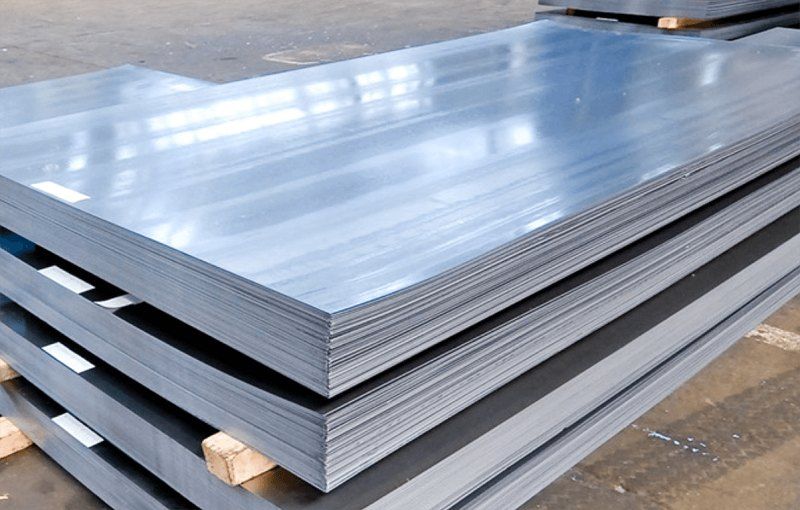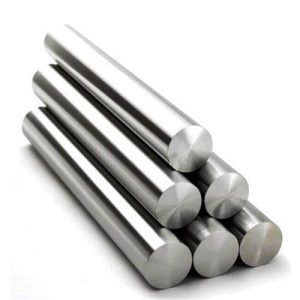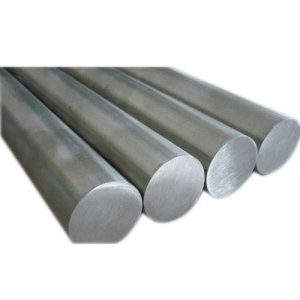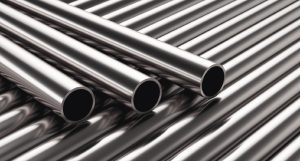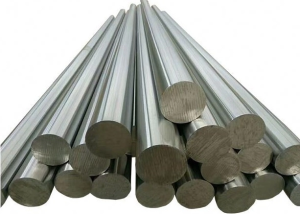In industrial sectors such as chemical processing, pharmaceuticals, marine, and food production, storage tanks are essential components that must endure harsh operational conditions. Selecting the right material for these tanks is crucial, as it directly impacts performance, longevity, and safety. Among the many materials available, 254 SMO Plates have gained prominence for storage tank manufacturing due to their unmatched combination of mechanical strength and corrosion resistance.
What Are 254 SMO Plates?
254 SMO is an austenitic stainless steel alloy known for its high levels of molybdenum, nitrogen, and chromium. This composition offers superior resistance to pitting, crevice corrosion, and stress corrosion cracking—particularly in chloride-rich environments. 254 SMO Plates refer to flat rolled steel sheets made from this alloy, available in various thicknesses and dimensions to suit different industrial needs.
Key Properties of 254 SMO Plates
The standout characteristics that make 254 SMO Plates suitable for storage tank applications include:
- Exceptional Corrosion Resistance
These plates are designed to withstand aggressive media such as chlorides, acids, and seawater, making them ideal for tanks storing corrosive substances. - High Strength and Toughness
With nearly twice the strength of conventional austenitic stainless steels, 254 SMO Plates offer superior mechanical performance, reducing the risk of material failure. - Weldability and Formability
254 SMO Plates can be easily welded and formed without compromising their structural integrity, a critical factor in storage tank fabrication. - Thermal Stability
These plates maintain their properties even under fluctuating temperatures, ensuring reliable performance in both hot and cold storage conditions.
Why 254 SMO Plates Are Ideal for Storage Tanks
1. Resistance to Chloride-Induced Corrosion
Storage tanks used in marine environments or in industries dealing with saline solutions are at high risk of chloride-induced corrosion. Standard stainless steels like 316L often fail in such conditions. 254 SMO Plates, however, offer exceptional resistance, ensuring the structural integrity of the tanks even in extreme chloride exposure.
2. Long-Term Cost Efficiency
Although 254 SMO Plates are more expensive upfront than standard stainless steels, their durability and corrosion resistance lead to fewer maintenance requirements, longer service life, and reduced downtime. This makes them a cost-effective choice over the tank’s operational lifetime.
3. Hygienic Surface and Easy Cleanability
In industries like pharmaceuticals and food processing, maintaining hygienic conditions is non-negotiable. The smooth surface finish and anti-corrosive nature of 254 SMO Plates minimize bacterial growth and make the tanks easier to clean and sterilize, meeting strict industry standards.
4. Environmental Compatibility
With increasing focus on sustainability and eco-friendly practices, 254 SMO Plates stand out for their recyclability and minimal environmental impact during their lifecycle. They also prevent leakage and contamination, protecting the surrounding environment.
5. Performance in High-Pressure Applications
Storage tanks often operate under high pressure, especially in petrochemical and gas processing industries. The high tensile and yield strength of 254 SMO Plates ensures that the tanks can handle these pressures without deformation or rupture.
Industries Benefiting from 254 SMO Plate-Based Storage Tanks
- Chemical Processing:
Aggressive chemicals demand storage solutions that won’t corrode or degrade over time. 254 SMO Plates provide reliable containment for such substances. - Desalination Plants:
Exposure to seawater makes corrosion resistance a top priority. These plates ensure long-lasting performance in salt-rich environments. - Pharmaceutical Industry:
The sterile and clean environment required for drug manufacturing makes 254 SMO Plates ideal for storage tanks that need to be both durable and hygienic. - Offshore and Marine Applications:
Tanks used offshore must resist harsh oceanic conditions. The robustness and corrosion resistance of 254 SMO Plates make them the preferred choice. - Food and Beverage:
Compliance with food safety standards is easier with tanks made from materials like 254 SMO, which are non-reactive and easy to clean.
Comparison with Other Materials
254 SMO Plates offer clear advantages over 316L stainless steel and duplex steel. They provide superior chloride resistance and the highest mechanical strength among the three. While their initial cost is higher, their long-term durability and low maintenance make them cost-effective. Weldability is excellent, similar to 316L, and better than duplex steel. In terms of longevity, 254 SMO plates last significantly longer, making them the ideal choice for demanding storage applications.
Tips for Using 254 SMO Plates in Storage Tank Fabrication
- Choose Certified Suppliers: Ensure the 254 SMO Plates are sourced from reliable manufacturers who provide quality certifications.
- Proper Welding Techniques: While these plates are weldable, using appropriate techniques and filler materials ensures optimal joint strength and corrosion resistance.
- Regular Inspection: Although they offer excellent durability, periodic inspection can catch early signs of wear and tear, further extending tank life.
- Surface Finishing: Opt for proper surface treatments to enhance cleanliness and appearance, especially in food or pharmaceutical industries.
Conclusion
The use of 254 SMO Plates in the manufacturing of storage tanks represents a smart investment in quality, durability, and long-term performance. With their unmatched resistance to corrosion, high mechanical strength, and adaptability to various industrial environments, they are the material of choice for critical storage applications.
Industries aiming to improve safety, reliability, and operational efficiency should strongly consider 254 SMO Plates for their storage tank construction. Their ability to withstand extreme conditions ensures peace of mind and maximized return on investment.

